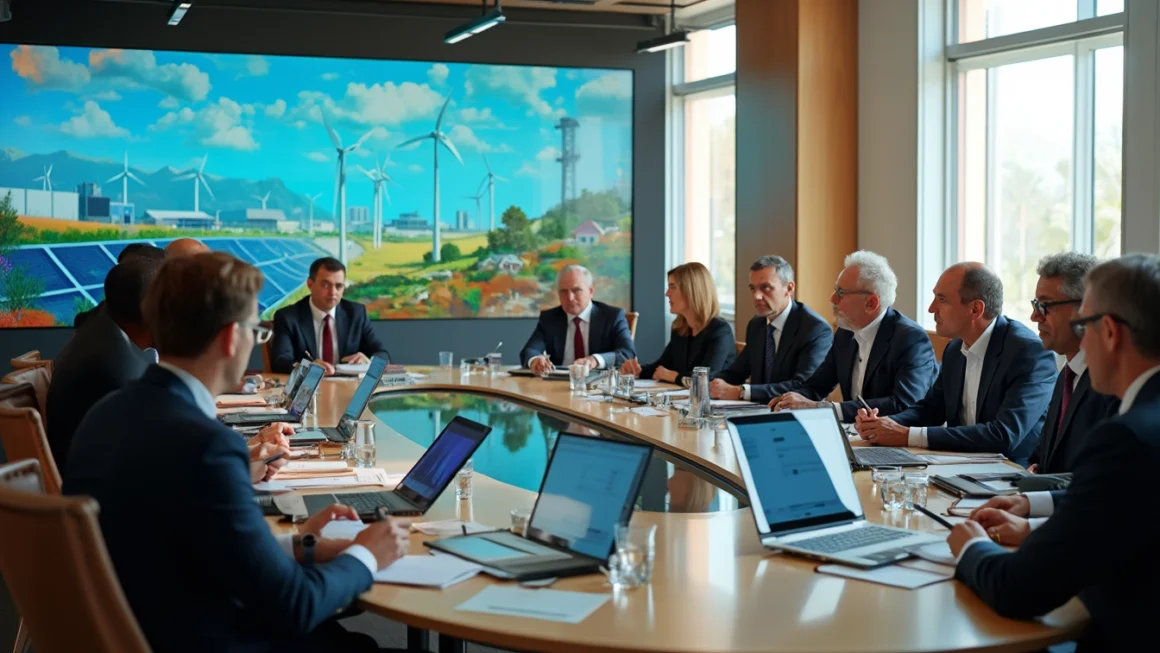Understanding the Power of Policy in Energy Transition
Table of Contents
The conversation around energy policy has taken center stage as nations strive to transition towards sustainable energy solutions. At the core of these discussions is the question: How can policymakers enhance ambition in energy policy to facilitate a just transition? With increasing global commitments to reducing carbon emissions, energy policies play a critical role in shaping the future of our energy landscape.
The Need for Enhanced Energy Policy Ambitions
Addressing Climate Change
Climate change remains one of the most pressing challenges of our time, necessitating a robust response through effective energy policies. By setting ambitious targets, governments can drive significant progress towards carbon neutrality. These policies not only aim to reduce environmental impact but also encourage innovation and investments in renewable energy sources.
Economic Opportunities
Transitioning to sustainable energy systems presents vast economic opportunities. By instituting clear policy frameworks, countries can attract investments in clean energy technologies. This not only stimulates economic growth but also promotes job creation across various sectors. Moreover, a well-articulated energy policy ensures a competitive advantage in the global energy market.
Key Elements of Effective Energy Policies
Incentivizing Renewable Energy
An effective energy policy must include incentives that promote the adoption of renewable energy. These can be in the form of tax credits, subsidies, and grants for companies investing in solar, wind, or other renewable technologies. Such incentives encourage innovation and make the transition to clean energy more economically viable.
Regulatory Measures
Regulations form the backbone of any comprehensive energy policy. By implementing standards that limit emissions and promote energy efficiency, governments can ensure compliance and drive improvements across the sector. Regulatory measures need to be transparent and adaptable to technological advancements to remain effective.
Public Awareness and Education
Engaging the public is crucial in the transition to sustainable energy. Policies that incorporate public education campaigns on the benefits of renewable energy can foster a culture of sustainability. Understanding the impacts and benefits allows citizens to support and actively participate in the energy transition.
Challenges in Implementing Energy Policies
Balancing Economic and Environmental Goals
One of the core challenges is balancing economic growth with environmental sustainability. Policymakers must consider the short-term economic impacts of transitioning away from fossil fuels while striving for long-term environmental benefits. This often involves complex trade-offs and requires careful planning and communication to stakeholders.
Technological and Financial Barriers
Technological adaptability and financial constraints may impede the implementation of energy policies. Developing regions often face challenges related to access to technology and funding. It is vital for international collaborations and financial support mechanisms to address these barriers, helping all nations to partake in the global energy transition.
The Role of International Collaborations
International cooperation is essential for sharing best practices, technologies, and financial resources. Collaborative platforms allow countries to align on common goals and share insights on successful policy frameworks. This exchange fosters a cohesive global response to energy transition challenges, therefore enhancing policy effectiveness.
Conclusion: The Path Forward
As we look ahead, enhancing energy policy ambition is crucial for a sustainable future. Policymakers must work diligently to create frameworks that encourage innovation, support economic growth, and facilitate a smooth transition to renewable energy. Engaging with stakeholders at all levels and fostering international collaboration will be vital in ensuring the effectiveness and sustainability of these energy policies.
For those interested in using digital tools to streamline processes related to energy policy implementations, consider exploring various automation platforms to efficiently manage tasks and data integration.
Learn more about automating your processes on make.com and explore how technology can aid in achieving energy efficiency goals.
By strengthening our energy policies today, we pave the way for a cleaner, more sustainable energy future. Let us commit to taking action and making the most of the opportunities at hand.




